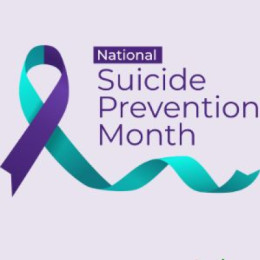Posted On: June 16, 2020 by Community HealthCare System in: Community health news Provider story
In June, we take time to celebrate our fathers. June is also Men’s Health Month, so it’s a perfect time to encourage your dad and other men in your life to get a checkup. Men are much less likely to schedule regular wellness visits, but checkups are important because many health problems can be prevented or treated with early diagnosis.
Dr. Marcus Weiser, family practice physician for Community HealthCare System, recently took time to answer a few questions about men’s health.
Q: Why should we focus more on Men’s Health?
A: Men have a shorter life expectancy. In fact, both worldwide and in the U.S., women live about 5 years longer, on average. Men are much less likely to go to the doctor, and we need to work to change this. Almost 1 in 4 adult men have not had a clinic visit with a doctor or health care provider in over a year, compared to only 1 in 10 women. Among adults in the U.S. age 65 and older, 39 percent of men have heart disease compared to 27 percent of women. Diabetes, high blood pressure, suicide, and cancer are also more common among men.
Q: At what age should men start having regular checkups?
A: Some of the overlooked benefits of regular checkups are opportunities to share your health history, discuss issues or concerns, and build a relationship with your doctor or provider. This improves the quality of care in the future, when a problem comes up. For these reasons, regular checkups are always a good idea at any age. An annual checkup becomes even more important after age 40.
Q: What is entailed in a typical wellness visit?
A: Many men don’t realize the difference between a wellness (or preventive care) visit versus a problem-based visit. When you come to the doctor with concerns, issues, symptoms, or problems, the focus of the clinic visit will be to diagnose, treat, and manage those issues. Preventive care is different. A typical wellness visit includes a review of your health history, including medications and family history. We screen for various problems by asking questions about a number of different symptoms. We’ll discuss preventive care recommendations including immunizations, disease-based testing, laboratory tests, and cancer screenings. Sometimes, this is a lot to do in a single visit! We often will focus on what we feel deserves the highest priority. Getting wellness visits every year allows for more thorough medical care.
Q: What should men report to their doctor?
A: It is always helpful to bring a mental or written list of questions or concerns. If it is a long list, we’ll focus on the highest priority issues and leave the rest for another visit. It is important to remember to tell us every medication you are taking, even if it is over-the-counter or prescribed by someone else. Remembering all significant family history is important also. Discussing sensitive issues isn’t easy for patients, but it may be helpful to remember that all medical care and information is private and strictly confidential.
Q: What kinds of screenings should men receive at certain ages?
A: Well, currently the U.S. Preventive Services Task Force has over 100 published screening recommendations. This includes screening for various cancers, screening for disorders needing specific tests like sleep apnea or aneurysms, and lab-based screenings to check for diseases like diabetes, anemia, or hepatitis. The Centers for Disease Control, American Cancer Society, American Academy of Family Physicians, and various other professional physician organizations each issue their own guidelines and recommendations. Some of these are fairly uniform and consistent, while others can vary considerably. Many screenings are only recommended for those considered to be at risk (based on social factors, family history, or personal medical history), while others are recommended at variable frequencies for different age groups. Think of this as a menu with options to select what is most appropriate as opposed to a checklist where every box needs checked. This is precisely why seeing your primary health care provider every year for a designated preventive care visit is so important. We can prioritize what is most important to help tailor screenings to the individual patient.
Q: What’s the best thing family members can do to encourage men to visit the doctor?
A:
- Make it easy. Help schedule an appointment, try to make it convenient, and offer to go only if he wants.
- Prepare. Help him develop a list of concerns or questions. Ask him to talk honestly about his lifestyle including diet, exercise, smoking, and alcohol consumption.
- Remind him why it is important. Let him know that keeping him healthy is a priority for his family. Putting off problems may make treatments more difficult or costly later. It is almost always better to detect serious medical conditions as early as possible.
 Dr. Marcus Weiser graduated from Bethany College with a bachelor’s degree in biology and attended medical school at Kansas City University of Medicine and Biosciences. He completed his residency at Via Christi (St. Joseph and St. Francis) in Wichita and served as chief resident. Dr. Weiser is board-certified in family medicine. He is trained to perform EGDs (esophagogastroduodenoscopy) and colonoscopies. He also practices obstetrics, including C-sections. He particularly enjoys teaching both third- and fourth-year medical students as a clinical assistant professor in the University of Kansas Medical Center Department of Family Medicine and as a clerkship preceptor for the Kansas City University of Medicine and Biosciences. Dr. Weiser was born and raised in northwest Kansas and lives just outside Onaga with his wife and five children. Outside of work, he enjoys spending time with his family, helping coach his kids’ sports teams, and, occasionally, golfing.
Dr. Marcus Weiser graduated from Bethany College with a bachelor’s degree in biology and attended medical school at Kansas City University of Medicine and Biosciences. He completed his residency at Via Christi (St. Joseph and St. Francis) in Wichita and served as chief resident. Dr. Weiser is board-certified in family medicine. He is trained to perform EGDs (esophagogastroduodenoscopy) and colonoscopies. He also practices obstetrics, including C-sections. He particularly enjoys teaching both third- and fourth-year medical students as a clinical assistant professor in the University of Kansas Medical Center Department of Family Medicine and as a clerkship preceptor for the Kansas City University of Medicine and Biosciences. Dr. Weiser was born and raised in northwest Kansas and lives just outside Onaga with his wife and five children. Outside of work, he enjoys spending time with his family, helping coach his kids’ sports teams, and, occasionally, golfing.









-
-
View AllBrenda | Jun 21st 2020 @ 11:45 AM
Thanks Dr. Marcus! ♥️
Emery Allison | Jun 24th 2021 @ 7:49 AM
Excellent and decent post. I found this much informative. I'm impressed by the details that you have on this website. Thank you for this post. Men's Health